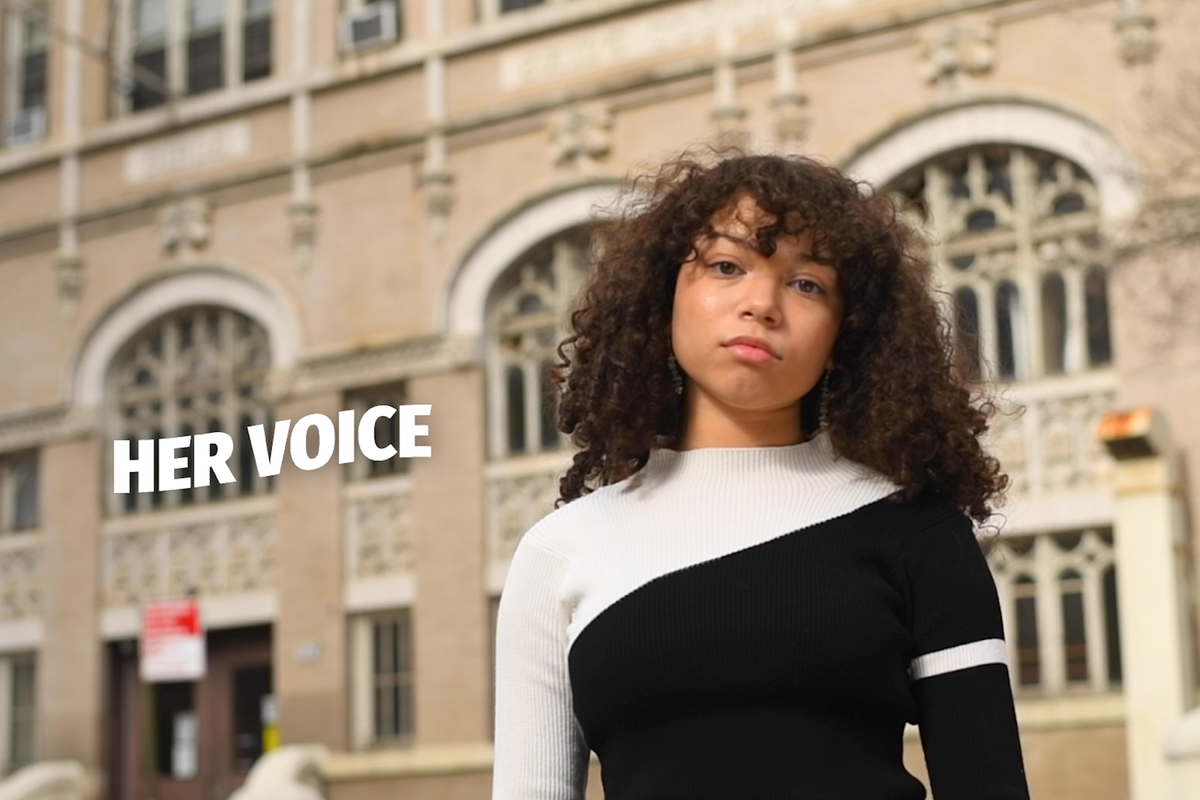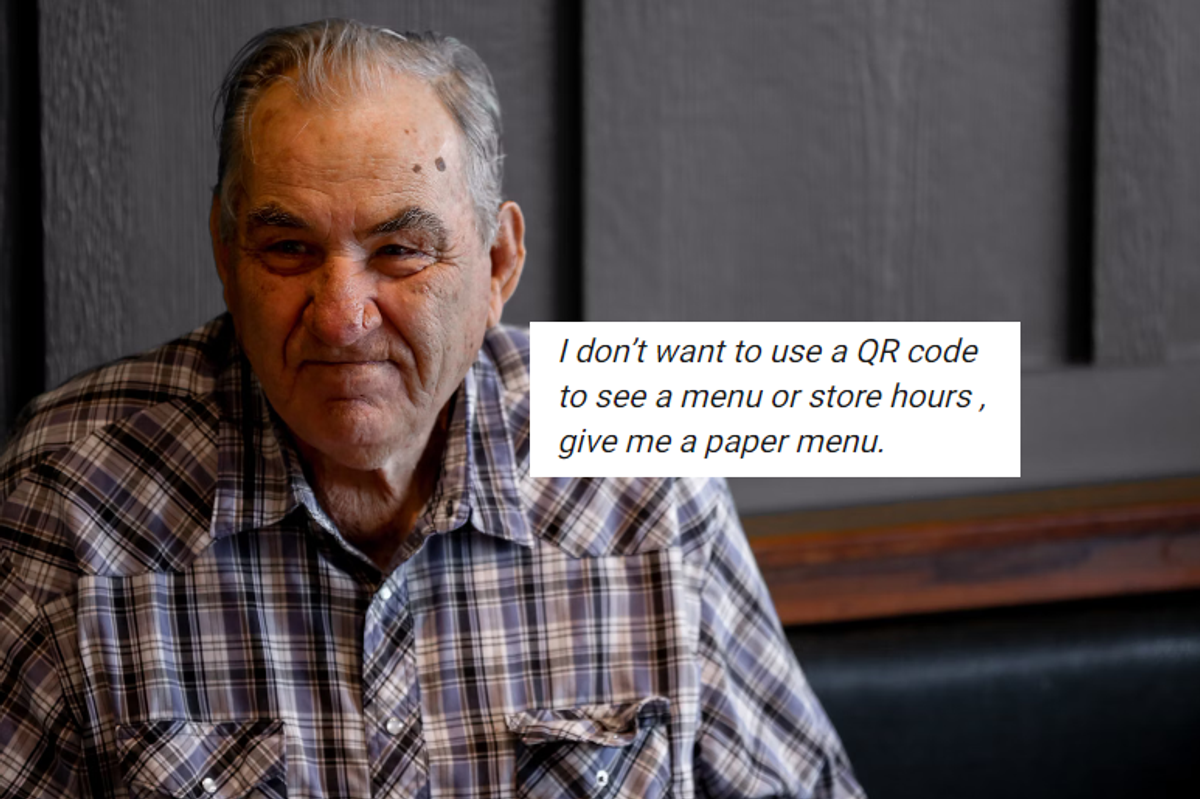Iconic feminist speeches retold by young girls offer a powerful tribute to women’s voices

Care's 'Her Voice Campaign' seeks to amplify women's voices everywhere
A banshee cry … a siren song … When a woman uses her voice, it carries enough power to change the world.
America witnessed an extraordinary potency in the 19th century with the speeches of women’s rights activist Sojourner Truth. And we experience it today in the poetry of Amanda Gorman. Both these women’s words teach, inspire, challenge and move us toward better days. Perhaps most important of all, they help encourage a future generation of women to speak freely, know their value and go after their dreams.

International Women’s Day, celebrated annually on March 8, was created to commemorate the cultural, political and socioeconomic achievements of women. So it seems fitting that CARE, a global organization dedicated to empowering women and girls, just released a powerful video that echoes and magnifies the strength of the female voice.
#HerVoice | International Women's Day 2022www.youtube.com
In the video, young girls recite the iconic words of feminist trailblazers both new and old, including Ruth Bader Ginsburg, Vice President Kamala Harris, Gloria Steinem and Venus Williams, to name a few. Seeing these young girls channel those who paved the way before them is a heartwarming reminder of how far we’ve come, and how the compassionate, courageous acts of a single person can affect the lives of many. Among them are a few familiar voices; Sophia Bush, Laura Dern and Saniyya Sidney—all powerhouse actresses and feminism advocates in their own right—lend their vocal talents.
The video is so much more than a touching tribute to the past. It kicks off CARE’s #HerVoice Campaign, developed to explore new solutions to address equality in modern times. The campaign features virtual conversations led by today’s history makers, including activist Vanessa Nakate and filmmaker Zuriel Oduwole. CARE is also partnering with the Obama Foundation to provide school access and opportunities to more than 500,000 girls around the world.
“CARE believes in the power of women, today and every day. This International Women’s Day, we are especially proud to feature legacy voices and rising leaders across industries uniting for change. The past few years have been extremely challenging, highlighting the need for not only more women leaders but women led solutions. The #HerVoice campaign honors the extraordinary acts of women that enable us to continue to advocate for our communities, and push for real change worldwide.”

This RBG Jr is both adorable and inspiring
This campaign strikes at the heart of what’s important: that while giant strides have been made for equality, there is still a long way to go. In recent times, the effects of the COVID-19 pandemic have made that even more evident. In a report titled “She Told Us So,” CARE provided some illuminating and heartbreaking statistics that show how the pandemic has affected and exacerbated gender inequality.
Since 2020, negative impacts have increased in almost every area of life for women. Their needs in the following areas were found to be high:
1. Mental health (63%)
2. Food security (59%)
3. Livelihood (55%)
4. Cash (54%)
5. Health services (47%)
As these numbers show, mental health and food security (both core needs) are the biggest concerns. And the two are deeply correlated.

Caring for precious young ones leaves women unable to properly care for themselves
In terms of food scarcity, the report finds that women are opting to skip meals to provide more nourishment to their families. One woman in Umbeda, Sudan shared her own experience as the sole head of her household during the pandemic. “It affected my body [but] I prefer to feed my children instead of myself … I have no money to support my family” she told CARE.
Daily struggles like this lead to a decline in mental health. The report showed how many of the underlying reasons for mental stress revolve around childcare—making sure little mouths are fed (again, when food is scarce) and taking on all household chores without payment.
As one women’s group representative noted: “If any opportunity appeared, the man would be the favorite, and for this reason, the man’s role was the strongest. This psychologically affected many women, as they turned to household work which included preparing food and cleaning only.” As the data shows, this idea that caretaking is a woman’s job is still pervasive, with potentially toxic effects.
We hear the phrase “the future is female,” but without actively empowering mothers and daughters in real-world situations, those words carry no meaning. During this time of unprecedented change, we have an opportunity to include everyone in the desire for a better tomorrow and strive to make equality the “new normal.”

International Women's Day is an opportunity to amplify the voices of women everywhere
Some holidays are meant for remembrance. Others, like International Women’s Day, can also be a call to action. This is why CARE is encouraging everyone to not only repost this video, but share what #HerVoice means to them. Visit care.org/hervoice to learn more, donate and support women’s voices by signing your name to a pledge.
- A male feminist just torched a bunch of sexist trolls in the most ... ›
- 3 women deliver a powerful message about the state of women's ... ›
- This International Women's Day, Tory Burch and Upworthy Are ... ›
- Sojourner Truth's 'Ain't I a Woman?' speech is inaccurate - Upworthy ›
- Nigel Barker takes photos for International Women's Day - Upworthy ›






 A woman is getting angry at her coworker.via
A woman is getting angry at her coworker.via  A man with tape over his mouth.via
A man with tape over his mouth.via  A husband is angry with his wife. via
A husband is angry with his wife. via 
 Some Boomer grandparents are being called out for "gramnesia".
Some Boomer grandparents are being called out for "gramnesia".

 A woman gets a tattoo.
A woman gets a tattoo. Boy playing on the computer.
Boy playing on the computer.
 Grumpy boomers aren't wrong about everything. Photo by
Grumpy boomers aren't wrong about everything. Photo by  Even the young people can't stand QR codes. Photo by
Even the young people can't stand QR codes. Photo by  Everything, even fast food, has gotten out of control expensive. Photo by
Everything, even fast food, has gotten out of control expensive. Photo by